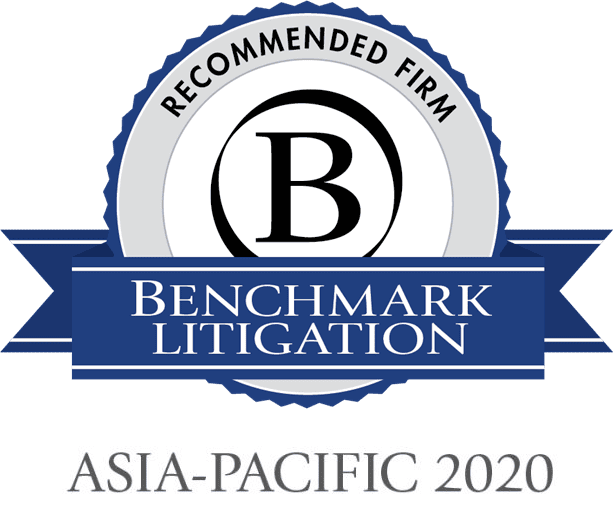With the epidemic levelling off locally, some restrictive measures have been relaxed but businesses continue to feel the pressure posed by Covid-19. Many companies will need to manage solvency risks in the coming months, and some may need to consider taking the inevitable route of closure. This article explains the different ways of closing down a company in Hong Kong.
In Hong Kong, company closures are usually effected by either “deregistration” or “winding-up”. Despite leading to the same result, the procedures involved are different. Closure of a defunct solvent private company by way of deregistration is relatively straightforward, cost-effective and fast. In contrast, winding-up involves the process of settling the accounts and liquidating the assets of a company for the purpose of repaying debts and making residual distribution to members. As could be imagined, winding up requires relatively higher costs and time.
Deregistration
Only a private company formed and registered under the Companies Ordinance (Cap. 622 of the Laws of Hong Kong)(“CO”) may apply for deregistration. The company must be a defunct solvent company. In addition, it must meet the following conditions before making an application for deregistration:
a. all the members of the company agree to the deregistration;
b. the company has not commenced operation or business, or has not been in operation or carried on business during the 3 months immediately before the application;
c. the company has no outstanding liabilities;
d. the company is not a party to any legal proceedings;
e. the company’s assets do not consist of any immovable property situate in Hong Kong; and
f. the company has obtained a “Notice of No Objection to a Company being Deregistered” (“Notice of No Objection”) from the Commissioner of Inland Revenue.
What steps are involved in deregistration?
An application for deregistration should be delivered to the Registrar of Companies (the “Registrar”), within 3 months from the date of issue of the Notice of No Objection.
If all documents are in order, a letter acknowledging receipt of the application will be issued in 5 working days. The Registrar will publish a notice of the proposed deregistration in the Gazette. If no objection to the deregistration is received within 3 months after the date of publication of the notice, the Registrar will deregister the company by publishing another notice in the Gazette declaring it to be deregistered on the date of publication of that other notice. The company is then dissolved on deregistration. The whole process takes approximately 5 months.
Voluntary Winding Up
If a company does not satisfy the pre-requisites for deregistration (e.g. if the company has operating business in recent months), it can instead be dissolved by members’ voluntary liquidation (“MVL”) or creditors’ winding up. In rare cases, a Compulsory Winding up Petition by the High Court of Hong Kong may also lead to a winding up. MVL and creditors’ winding up will be discussed below.
How does voluntary winding up work?
MVL requires the company to be solvent i.e. having the ability to settle all of its debts in full. Before a company commences MVL, it should settle all outstanding liabilities and dispose of assets held in order to expedite the process. To kick off the process, the company would have to resolve issue a certificate of solvency and the shareholders would have to resolve the winding up decision.
In the certificate of solvency, directors have to certify that a full inquiry into the company’s affairs was made, and having so done, they have formed the opinion that the company will be able to pay its debts in full within 12 months from the winding-up. If the Certificate is not filed, or if the company subsequently becomes insolvent after commencement of MVL, the winding up will be conducted as a creditors’ winding up[1].
The company has to convene an EGM to pass a special resolution for the dissolution of the company, and an ordinary resolution for the appointment of a liquidator. A notice of the resolution has to be advertised in the Government Gazette and liquidator must deliver a notice of his appointment to the Hong Kong Registrar of Companies within 14 days of the appointment.
The liquidator, who is usually a solicitor or a professional accountant, will deal with the affairs of the company, liquidating its assets and paying creditors of the company. Once tax clearance has been obtained from the Inland Revenue Department, the liquidator will proceed to distribute any surplus and return the capital back to shareholders. If the company has the simplest structure of huge assets or liabilities, the process may take around 8-9 months, depending significantly on the tax clearance process mentioned (which may take up to 3-6 months).
What should a company be aware of after MVL has commenced?
After the commencement of winding up, it should be noted that:-
1. From the day of commencement of winding-up (i.e. the day when the company is dissolved by special resolution), the company must cease business operation, except for those required for winding-up[2].
2. The powers of the board of directors will cease unless the liquidator has decided that the board shall continue to have such powers.
3. Unless with the sanction of the liquidator, any transfer of shares or alteration of members’ status shall be void.
What if overseas winding-up proceedings are commenced against Hong Kong assets/business?
It is common for MNCs to have presence one way or the other in HK (such as by way of holding assets or having business in HK). If a foreign parent undergoes foreign insolvency proceedings and there are liquidators appointed by foreign Court, foreign liquidators might encounter difficulties during its enforcement action in HK. To address this, foreign liquidators might resort to the Hong Kong Companies Court to obtain a recognition order of the foreign insolvency proceeding in order to lay their hands on the company’s Hong Kong properties.
The HK Court has been open to providing such assistance to liquidators, provided that certain conditions are satisfied. Indeed, liquidators from a common law jurisdiction will likely be granted recognition and assistance, and recent cases show that the Court will even recognize insolvency proceedings in the PRC, a civil law jurisdiction (for details, please see our article on “Legal Update – HK Court Recognizes Application by PRC Liquidators”).
Good news to foreign liquidators but bad news to businesses which might want to protect the Hong Kong assets in case of liquidation — there are claw back mechanisms under CWUMPO whereby certain transactions preceding winding up could be void by liquidators. In particular, transactions or dispositions which are undervalue or unfairly preferential to one creditor over the others are subject to claw back if they happen within specified timeframes before liquidation.
What can a Hong Kong subsidiary do if its foreign parent is being wound up overseas?
A subsidiary is a legal entity with its own stock, and is separate and distinct from its parent company. When a parent company goes bankrupt, legally it should have no impact in the subsidiary.
Practically however, the foreign parent’s ownership interest in the Hong Kong subsidiary is an asset. The liquidators of the parent company have a duty to manage and liquidate assets of the parent company in order to pay debts. What the liquidators will do is to arrange for the liquidation of the Hong Kong subsidiary in order to distribute assets to creditors of the foreign parent company. Essentially, with an insolvent parent, the Hong Kong subsidiary will be at risk of a complete upheaval.
To expedite the liquidation process, it is advisable for the Hong Kong subsidiary to engage legal advisors so as to better understand each step of the proceedings. Our firm is experienced in handling cross border insolvency, and has frequently collaborated with foreign counterparts in similar matters. If such needs arise, our firm will be happy to provide assistance.
Scheme of arrangement
Hong Kong lacks procedure akin to Chapter 11 procedures in the United States which aims at rescuing companies on the verge of insolvency. The closest alternative in Hong Kong is the scheme of arrangement, which is frequently used by companies to give effect to a debt restructuring. Importantly, a scheme is neither an insolvency nor a bankruptcy process, and are relatively low profile in terms of publicity as no Gazetting is required.
A company in fiscal difficulty would usually compile a proposal for its creditors, proposing terms for a compromise of the company’s debts so that creditors may accept a lesser amount in full settlement of the debt. It should be noted that even where a company is undergoing a winding-up procedure, the liquidator has power to initiate a scheme of arrangement.
What are the procedures effecting a scheme of arrangement?
Once the proposal has been finalized, the application is made to the Court for its approval to convene meeting of each class of affected creditors. In each of the meetings, the scheme must be approved by both a majority of at least 50% in number, and a majority in number presenting at least 75% in value of the voting creditors. Upon the Court’s approval, an order sanctioning the scheme will be made. Such order will bind all creditors of the company, even if they did not vote.
What kind of company can invoke a scheme?
Apart from companies incorporated under the CO in Hong Kong, the Courts of Hong Kong may also approve schemes of arrangement having a “sufficient connection” with Hong Kong, as evidenced by factors such as listing on the Hong Kong Stock Exchange, creditors and/or management located in Hong Kong etc. In other words, foreign-incorporated companies, such as those from offshore jurisdictions, can also apply for approval of the scheme (as long as they can establish a sufficient connection with Hong Kong). It is therefore common for a foreign company with debts and liabilities in Hong Kong to seek the Court’s sanction for a scheme of arrangement in Hong Kong.
Our firm has extensive experience in assisting businesses in their closing down exercise in HK including the devising of a restructuring strategy, advice on each step of the restructure, negotiations with creditors if necessary, as well as preparation of proposed terms of the scheme. We will also be able to offer bespoke advice on the suitability of implementing a scheme and whether other alternatives are available to the company, so as to tailor to the specific needs of each company.
If you have any question regarding the topic discussed above, please contact our partner Anna Chan at anna.chan@oln-law.com for further assistance.
Disclaimer: This article is for reference only. Nothing herein shall be construed as Hong Kong legal advice or any legal advice for that matter to any person. Oldham, Li & Nie shall not be held liable for any loss and/or damage incurred by any person acting as a result of the materials contained in this article.
[1] Sections 237A & 237B, Companies (Winding up and Miscellaneous Provisions) Ordinance (Cap. 32 of the Laws of Hong Kong)(“CWUMPO”).
[2] Section 231, CWUMPO.
 Suite 503, 5/F, St. George's Building, 2 Ice House Street, Central, Hong Kong
Suite 503, 5/F, St. George's Building, 2 Ice House Street, Central, Hong Kong +852 2868 0696
+852 2868 0696







